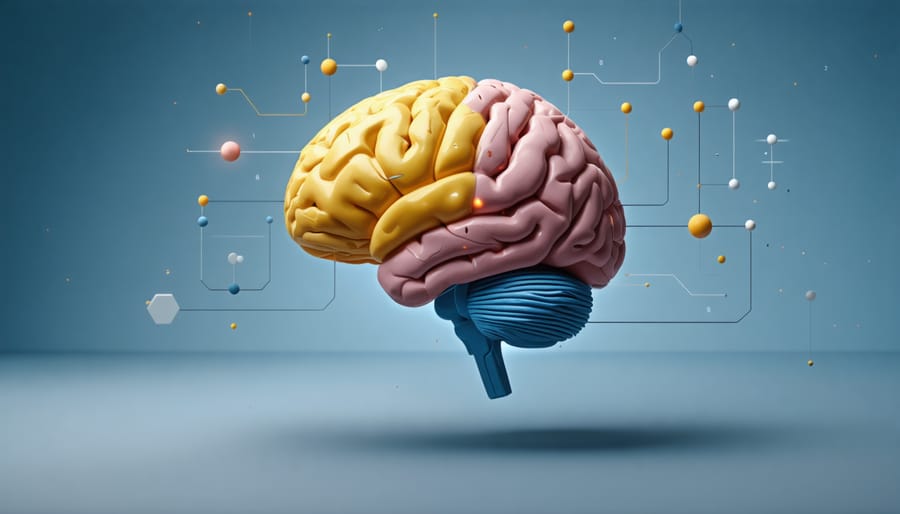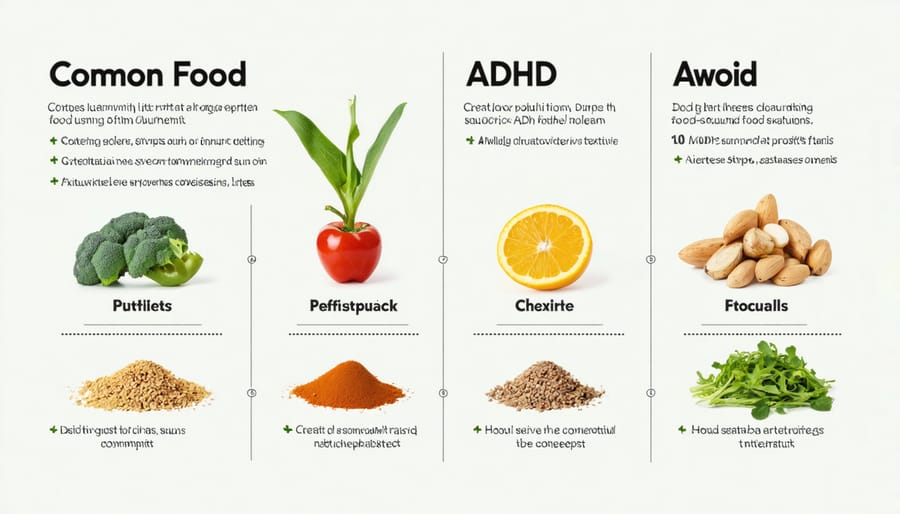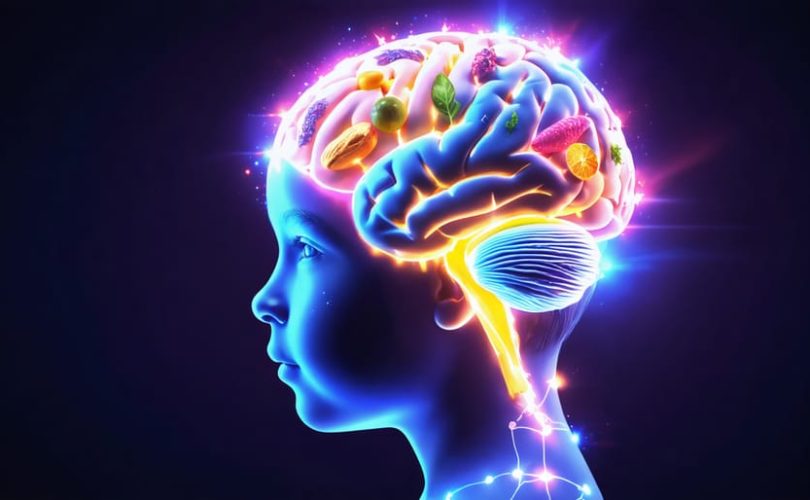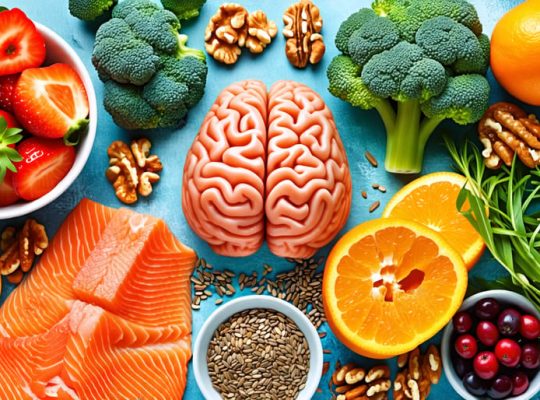Emerging research reveals a powerful connection between diet and mental health, particularly in children with ADHD. While medication remains a cornerstone of ADHD treatment, micronutrients – the essential vitamins and minerals our bodies need in small amounts – may play a crucial role in managing symptoms and supporting overall brain function.
Recent studies have shown that children with ADHD often have lower levels of specific nutrients, including zinc, iron, magnesium, and vitamin D. These deficiencies can intensify symptoms like difficulty concentrating, impulsivity, and emotional regulation challenges. More importantly, addressing these nutritional gaps through diet modifications and targeted supplementation has demonstrated promising results in improving attention, behavior, and cognitive performance.
For parents navigating the complex landscape of ADHD management, understanding the role of micronutrients opens up new possibilities for supporting their child’s wellbeing. While not a replacement for conventional treatments, optimizing nutrition can serve as a valuable complement to existing ADHD interventions, potentially leading to better outcomes and improved quality of life for children living with ADHD.
How Micronutrients Impact Brain Function in Children with ADHD
Key Brain-Supporting Nutrients
Several key nutrients play vital roles in supporting brain function and potentially improving ADHD symptoms. Iron, for instance, helps produce neurotransmitters that regulate attention and behavior. Many children with ADHD have been found to have lower iron levels, which can affect their focus and mood.
Zinc is another crucial mineral that aids in neurotransmitter production and has been linked to improved attention spans in children. Studies show that some children with ADHD have lower zinc levels compared to their peers. Magnesium, often called the “calming mineral,” supports nervous system function and may help reduce hyperactivity.
Omega-3 fatty acids, particularly DHA and EPA, are essential for brain development and function. These healthy fats help build brain cell membranes and support communication between neurons. Research suggests that children with ADHD often have lower levels of omega-3s in their blood.
B-vitamins, especially B6, B12, and folate, are necessary for producing and regulating neurotransmitters that affect attention and behavior. Vitamin D also plays a crucial role in brain development and function, with some studies showing a connection between vitamin D deficiency and ADHD symptoms.
While these nutrients aren’t a replacement for prescribed ADHD treatments, ensuring adequate intake through diet or supplementation (under medical supervision) can support overall brain health and potentially help manage symptoms. Remember that each child’s nutritional needs are unique, so it’s important to work with healthcare providers to determine the right approach for your child.

The Gut-Brain Connection
The connection between our gut and brain is like a busy two-way street, constantly sending messages back and forth. This fascinating relationship plays a crucial role in how our bodies process nutrients and how those nutrients affect our attention and focus.
When we eat, our digestive system doesn’t just break down food – it also produces important chemicals that influence our brain function. Many of these chemicals, including neurotransmitters like serotonin, are actually produced in the gut first. This is why some researchers now refer to the gut as our “second brain.”
For children with ADHD, this gut-brain connection is particularly important. Poor nutrient absorption in the gut can directly impact cognitive function, potentially affecting attention, mood, and behavior. For example, when the body struggles to absorb essential nutrients like zinc, iron, or B-vitamins, it may affect the production and function of important brain chemicals that help regulate attention and focus.
A healthy gut environment helps ensure that micronutrients from food are properly absorbed and can reach the brain where they’re needed. This is why addressing digestive health through a balanced diet, sufficient fiber, and proper hydration can be just as important as focusing on specific nutrients when managing ADHD symptoms.
Many parents report seeing improvements in their children’s focus and behavior when they address both gut health and nutrient intake together. This holistic approach recognizes that how we absorb nutrients is just as important as which nutrients we consume.

Essential Micronutrients for ADHD Management
Zinc and Iron
Zinc and iron play crucial roles in managing ADHD symptoms, particularly when it comes to attention and hyperactivity. Research has shown that children with ADHD often have lower levels of these essential minerals compared to their peers.
Zinc helps regulate dopamine, a neurotransmitter that affects attention and behavior. When children have adequate zinc levels, they typically show better focus and reduced hyperactivity. One mother shared how incorporating zinc-rich foods like pumpkin seeds and lean meats into her son’s diet contributed to noticeable improvements in his concentration at school.
Iron is equally important, as it supports the production of dopamine and helps transport oxygen to the brain. Dr. Sarah Thompson, a pediatric nutritionist, explains, “Iron deficiency can mimic or worsen ADHD symptoms, making it harder for children to concentrate and control their impulses.”
Good dietary sources of these minerals include lean red meat, oysters, legumes, and fortified cereals. While food should be your first source, some children may benefit from supplementation under medical supervision. Always consult with your healthcare provider before starting any supplementation program.
Magnesium and B-Vitamins
Magnesium and B-vitamins play crucial roles in supporting brain function and managing ADHD symptoms. Magnesium helps regulate neurotransmitters – the chemical messengers in our brain that affect attention, mood, and behavior. Many children with ADHD have been found to have lower magnesium levels, which can contribute to restlessness and difficulty concentrating.
B-vitamins work together as a family to support mental clarity and emotional well-being. For example, vitamin B6 helps produce serotonin, often called the “feel-good” hormone, while B12 and folate are essential for overall brain health and development. These nutrients work like a team, helping your child’s brain send and receive messages more effectively.
Dr. Sarah Thompson, a pediatric nutritionist, shares: “I’ve seen remarkable improvements in children’s focus and emotional regulation when we address magnesium and B-vitamin deficiencies through diet and supplementation.” Good food sources include leafy greens, nuts, whole grains, and lean proteins. However, always consult with your healthcare provider before starting any supplementation routine, as individual needs can vary significantly.
Omega-3 Fatty Acids
Omega-3 fatty acids, particularly DHA and EPA, play a crucial role in supporting brain health and cognitive function in children with ADHD. These essential fats help build and maintain brain cell structures, improve communication between nerve cells, and reduce inflammation. Parents often notice improvements in their children’s focus and attention when they include more omega-3-rich foods in their diet.
Dr. Sarah Thompson, a pediatric nutritionist, shares: “I’ve seen remarkable changes in children’s concentration levels when we increase their omega-3 intake through foods like fatty fish, walnuts, and chia seeds.” Research suggests that children with ADHD often have lower levels of omega-3s compared to their peers, and supplementation may help reduce symptoms like inattention and hyperactivity.
Consider incorporating salmon, sardines, flaxseeds, or omega-3 enriched eggs into your child’s meals. If you’re thinking about supplements, always consult with your healthcare provider first to determine the right approach for your child.
Practical Tips for Parents
Food Sources vs. Supplements
While both food sources and supplements can provide essential micronutrients, natural food sources should be your first choice whenever possible. Foods not only contain the nutrients we’re targeting but also offer additional benefits through their complex mix of compounds that work together.
For example, an orange provides vitamin C along with fiber and other beneficial plant compounds that a supplement can’t replicate. However, some children with ADHD may have specific nutritional gaps or dietary restrictions that make supplementation necessary. Dr. Sarah Johnson, a pediatric nutritionist, explains, “While I always encourage a food-first approach, some children may need targeted supplementation to meet their nutritional needs.”
Consider these guidelines when deciding:
– Start with dietary changes and track improvements
– Consult with healthcare providers before starting supplements
– Choose high-quality, third-party tested supplements if needed
– Monitor for any adverse reactions
– Combine supplements with healthy eating habits
Remember that supplements aren’t meant to replace a balanced diet but rather to complement it when necessary. Work with your healthcare team to determine the best approach for your child’s specific needs.

Kid-Friendly Nutrient-Rich Meals
Creating nutritious meals that kids actually enjoy can help support their development and ADHD management while fostering a healthy relationship with food. Here are some kid-approved meal ideas packed with essential nutrients:
Breakfast:
– Colorful smoothie bowl with berries, banana, spinach, and chia seeds
– Whole grain toast with almond butter, sliced banana, and a sprinkle of hemp seeds
– Greek yogurt parfait with granola, honey, and mixed berries
Lunch:
– Turkey and cheese roll-ups with cucumber sticks and hummus
– Tuna salad sandwich on whole grain bread with cherry tomatoes
– Quinoa bowl with black beans, corn, and diced avocado
Dinner:
– Mini turkey meatballs with hidden vegetables and whole grain pasta
– Baked salmon nuggets with sweet potato wedges
– Build-your-own tacos with lean ground beef, lettuce, tomatoes, and cheese
Snacks:
– Apple slices with peanut butter
– Trail mix with nuts, dried fruits, and dark chocolate chips
– Homemade vegetable muffins
Remember to involve your children in meal planning and preparation to increase their interest in trying new foods.
Understanding the relationship between micronutrients and ADHD can open new possibilities for supporting your child’s well-being. While nutrition alone isn’t a replacement for established ADHD treatments, the research we’ve explored shows that proper nutrition can play a valuable supporting role in managing symptoms and promoting overall health.
Remember that every child is unique, and what works for one may not work for another. The key is to work closely with your healthcare provider to develop a comprehensive approach that includes proper nutrition alongside other recommended treatments. Consider discussing specific nutrient testing, dietary modifications, and supplementation options during your next appointment.
As you implement dietary changes, be patient and maintain realistic expectations. Small, consistent steps toward better nutrition can make a meaningful difference over time. Keep a food and behavior diary to track any improvements, and share these observations with your healthcare team.
By prioritizing proper nutrition and staying informed about the latest research, you’re taking positive steps to support your child’s health and development. You’re not alone on this journey – your healthcare providers are there to guide and support you every step of the way.







